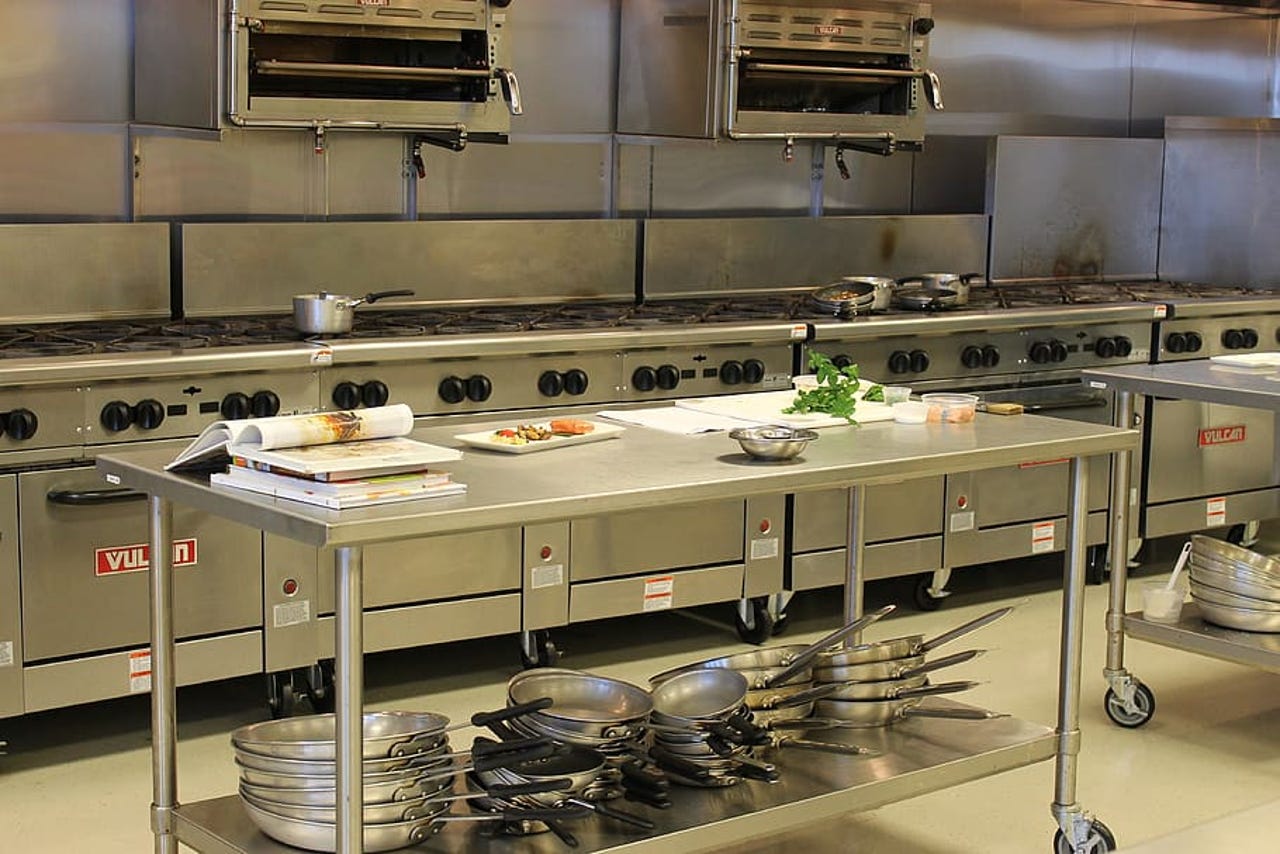































 pxFuel
pxFuel As dine-in activity remains stagnant, so-called ghost kitchens (cooking facilities that produce food only for delivery with no dine-in or customer-facing areas) have become a mainstay in many cities. With the shift in demand during the COVID-19 pandemic, this trend is only growing as delivery remains the lifeblood of many restaurants.
The pandemic, it seems, accelerated a trend that already existed. According to estimates, ghost kitchens were a $43.1 billion industry in 2019 and could create a$1 trillion global opportunity by 2030. Many large national and international restaurants are also getting into the mix. Wendy's announced plans to open 700 ghost kitchens across the United States, Canada, and the United Kingdom by 2025. Even TikTok is planning a delivery-only restaurant concept!
Despite all the fanfare, ghost kitchens are struggling with ever-growing internal delivery workflow frictions, not surprising as kitchens designed to serve hundreds of in-house diners are now rushing to produce 1,000 to 3,000+ orders a day. Although many of these enterprises have invested heavily in technology, with off-premise delivery solutions saturating the market, these high-output businesses lack on-premise automated delivery workflow.
Automation, it turns out, may be the key to helping ghost kitchens, even smaller ones, survive and thrive in the post-pandemic reality.
Also: Chipotle is testing a new tortilla chip robot (no, really!)
"New technologies, especially in emerging automation systems, typically begin at large enterprises and find their way into SMB kitchens as part of new infrastructures," says Haitham Al-Beik, CEO of Wings, a firm working on last-mile delivery solutions. "As the cost continues to lower, the system will become more accessible and even easier to use. Moreover, it will find its place in more than just kitchens as it expands to be an integral part of the Future of Work (FOW) in many industries."
I connected with Al-Beik to discuss logistical difficulties and technology-abetted solutions related to ghost kitchens. He and his team are working to produce privately labeled automation systems for enterprise technology service partners and suppliers. He thinks Ghost Kitchens are the new norm and a tantalizing market opportunity in 2022 and beyond.
"Although today, transactions and delivery segments are already digitized by omnichannel services, such as DoorDash and Uber Eats, the ghost kitchen market is next on the horizon for fulfillment and distribution. The on-premise labor-driven fulfillment and distribution supply chain depends on non-automated runners that sort, store, dispatch, and handoff orders to couriers. The continued digitization of the Ghost Kitchen is to automate the runners and storage operations that are currently being labor-driven."
Of course, in a tight labor market, there's also a big incentive to figure out how to increase efficiency, essentially doing more with less. Restaurants, in particular, are feeling the squeeze, although ghost kitchens may have an advantage here. Al-Beik points to repeatability and asks how ghost kitchens could get ahead of the curve now.
"Focus on removing non-value add labor with workflows and relevant stations that are highly repeatable. The more you design a Ghost Kitchen with continuous systems with automation systems consisting of workflows and a relevant station, the better it flows end-to-end. The goal is to create adaptable and intelligent systems that can effortlessly flow with external and uncertain global changes for a lean and mean machine."
Ghost kitchens are better able to do that by eliminating the front-of-house focus. That simplifies the massive logistical challenges of the restaurant to a degree that creating the perfect ghost kitchen is as much an engineering challenge as a culinary or marketing one.
 Tags chauds:
Intelligence artificielle
Innovation et Innovation
Tags chauds:
Intelligence artificielle
Innovation et Innovation